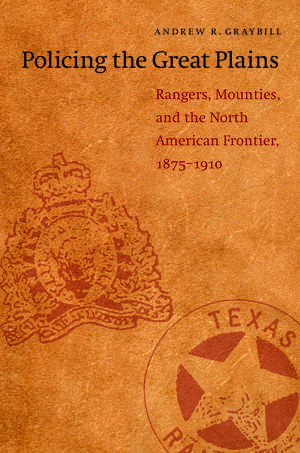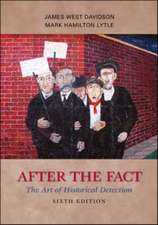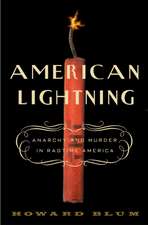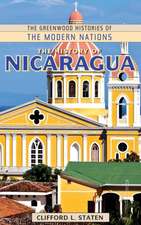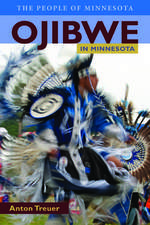Policing the Great Plains: Rangers, Mounties, and the North American Frontier, 1875-1910
Autor Andrew R. Graybillen Limba Engleză Paperback – noi 2007
Published in Cooperation with the William P. Clements Center for Southwest Studies, Southern Methodist University.
In the late nineteenth century, the Texas Rangers and Canada’s North-West Mounted Police were formed to bring the resource-rich hinterlands at either end of the Great Plains under governmental control. Native and rural peoples often found themselves squarely in the path of this westward expansion and the law enforcement agents that led the way. Though separated by nearly two thousand miles, the Rangers and Mounties performed nearly identical functions, including subjugating Indigenous groups; dispossessing peoples of mixed ancestry; defending the property of big cattlemen; and policing industrial disputes. Yet the means by which the two forces achieved these ends sharply diverged; while the Rangers often relied on violence, the Mounties usually exercised restraint, a fact that highlights some of the fundamental differences between the U.S. and Canadian Wests. Policing the Great Plains presents the first comparative history of the two most famous constabularies in the world.
In the late nineteenth century, the Texas Rangers and Canada’s North-West Mounted Police were formed to bring the resource-rich hinterlands at either end of the Great Plains under governmental control. Native and rural peoples often found themselves squarely in the path of this westward expansion and the law enforcement agents that led the way. Though separated by nearly two thousand miles, the Rangers and Mounties performed nearly identical functions, including subjugating Indigenous groups; dispossessing peoples of mixed ancestry; defending the property of big cattlemen; and policing industrial disputes. Yet the means by which the two forces achieved these ends sharply diverged; while the Rangers often relied on violence, the Mounties usually exercised restraint, a fact that highlights some of the fundamental differences between the U.S. and Canadian Wests. Policing the Great Plains presents the first comparative history of the two most famous constabularies in the world.
Preț: 249.57 lei
Nou
Puncte Express: 374
Preț estimativ în valută:
47.75€ • 49.86$ • 39.52£
47.75€ • 49.86$ • 39.52£
Carte tipărită la comandă
Livrare economică 04-18 aprilie
Preluare comenzi: 021 569.72.76
Specificații
ISBN-13: 9780803260023
ISBN-10: 0803260024
Pagini: 294
Ilustrații: 25 Illus., 3 maps
Dimensiuni: 152 x 229 x 17 mm
Greutate: 0.4 kg
Editura: Nebraska Paperback
Colecția University of Nebraska Press
Locul publicării:United States
ISBN-10: 0803260024
Pagini: 294
Ilustrații: 25 Illus., 3 maps
Dimensiuni: 152 x 229 x 17 mm
Greutate: 0.4 kg
Editura: Nebraska Paperback
Colecția University of Nebraska Press
Locul publicării:United States
Notă biografică
Andrew R. Graybill is an assistant professor of history at the University of Nebraska–Lincoln.
Cuprins
Acknowledgements
List of Illustrations
Introduction: “Similar Organizations in Other Parts”
Chapter 1: Instruments of Incorporation
Chapter 2: Subjugating Indigenous Groups
Chapter 3: Dispossessing Peoples of Mixed Ancestry
Chapter 4: Defending the Cattleman’s Empire
Chapter 5: Policing the Industrial Frontier
Epilogue: “Deeds, Real and Imagined”
Notes
Bibliography
Index
List of Illustrations
Introduction: “Similar Organizations in Other Parts”
Chapter 1: Instruments of Incorporation
Chapter 2: Subjugating Indigenous Groups
Chapter 3: Dispossessing Peoples of Mixed Ancestry
Chapter 4: Defending the Cattleman’s Empire
Chapter 5: Policing the Industrial Frontier
Epilogue: “Deeds, Real and Imagined”
Notes
Bibliography
Index
Recenzii
"Graybill may be an academic, but his accessible and breezy writing style is anything but. Policing the Great Plains should have popular appeal on both sides of the 49th parallel and will challenge widely held beliefs. It is thoroughly researched, amply endnoted, and contains an extensive bibliography of primary and secondary sources."—Mark Dworkin, Wild West Historical Association Journal
"Relevant issues, fascinating changes, solid research, and insightful views make this work one that will help quiet a perennial question: What ever happened to frontier history?"—Richard A. Van Orman, Journal of American History
"Fascinating and important."—Sheila McManus, Western Historical Quarterly
"By identifying the common threads that unite the histories of the Rangers and Mounties, as well as the disparate strands that set them apart, Graybill's study underscores the value of comparative history."—Michel Hogue, Great Plains Quarterly
"The is much to be learned by Graybill's comparative approach not only about police units but about frontier governments and the emergence of plains statehood. This is an enjoyable study, easy to read and well worth the investment. It should be on the shelves of every western American historian."—Gary Clayton, Montana, the Magazine of Western History
"[Graybill's] work emerges as one of the most carefully crafted examples of comparative and transnational history published in recent years, and it stands as a model study for the other frontier law enforcement agencies around the world."—Michael L. Tate, Journal of Military History
